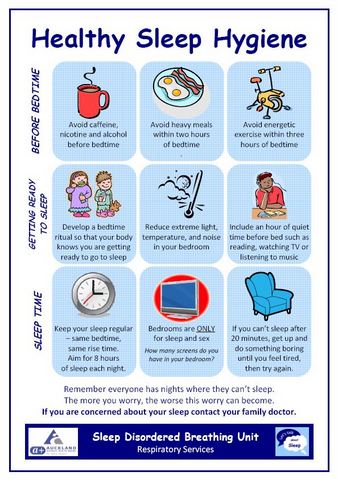Wishing everyone happy holidays and a joyful New Year from the Healthify team. Don't forget to Slip, Slop, Slap and Wrap!
Zopiclone
Sounds like 'zop-ih-klone'
Key points about zopiclone
- Zopiclone is used to treat short-term sleep problems.
- It's also called Zopiclone Actavis® or Imovane®.
- Find out how to take it safely and possible side effects.

Zopiclone is used to treat short-term sleep problems or insomnia. It helps you fall asleep more quickly and also helps stop you from waking up during the night. It works on chemicals in your brain to make you relaxed and sleepy.
Zopiclone is only used if other non-medication treatments aren’t working.
Zopiclone is only available with a prescription from a prescriber and should be used at the lowest dose only for a short time (usually for up to 5 to 10 days).
It should only be used occasionally, not every day. Try to take it no more than 2 to 4 nights a week. It shouldn’t be used for long periods of time because your body gets used to it quickly. After a short time, it's unlikely to have the same effect. Your body can also become dependent on it.
It's best to continue to use relaxation techniques while you're taking zopiclone. Read more about insomnia, sleep and tips to improve your sleeping habits.
In Aotearoa New Zealand zopiclone is available as 7.5 mg tablets.
- Always take your zopiclone exactly as your healthcare provider has told you. The pharmacy label on your medicine will tell you how much to take, how often to take it and any special instructions.
- The usual dose of zopiclone in adults is 1 tablet at bedtime. Don't take more than this in the same night.
- A lower dose (half a tablet) is recommended for older adults (over 65 years of age). Taking this lower dose reduces your risk of falls and other side effects.
- Zopiclone takes about 1 hour to work.
- Your healthcare provider will prescribe the lowest dose for a short time.
- Only use zopiclone if you have to. You don't need to take zopiclone every night.
- Try to fall asleep first using sleep hygiene techniques and then use zopiclone only if you remain awake.
- Swallow the tablet whole. Don't crush or chew it.
- Take zopiclone with a glass of water.
- Don't take zopiclone if you wake up from your sleep during the night.
Here are some things to know when you're taking zopiclone. Other things may be important as well, so ask your healthcare provider what you should know about.
Extra care is needed when taking zopiclone because it can cause daytime sleepiness and affect your concentration. This can make accidents more likely. accidents.
Drowsiness
Zopiclone causes drowsiness but it can affect people in different ways. In some people, drowsiness can last 12 hours after taking the dose. Depending on when you last took Zopiclone, the effect can last into the following day. This can feel like a ‘hangover’ with symptoms including sleepiness, co-ordination problems, dizziness and falls.
Avoid alcohol
Drinking alcohol before or after taking zopiclone can cause severe drowsiness and breathing problems and you may find it difficult to wake up.
Avoid driving or cycling
Don't drive or use a bike until you know how zopiclone affects you. Read more about driving and taking medication(external link).
Risk of falls
Zopiclone can increase your risk of falls because of its effect on concentration and sleepiness, and it can also cause muscle weakness.
Your risk of falls is greater if you:
- are an older adult (over 65 years)
- get out of your bed at night
- are taking other medicines that also put you at risk of falls.
Read more about medicines and falls risk and preventing falls.
Don't stop taking zopiclone suddenly
If you've been using zopiclone for longer than a few weeks, don't stop taking it suddenly. It's best to reduce the dose slowly. Talk with your healthcare provider about how to do this. Stopping suddenly can cause withdrawal symptoms such as anxiety, restlessness and more sleep problems.
Dependence (relying on it)
This is more likely to happen if you've been taking zopiclone for more than a few weeks. These symptoms include difficulty stopping, sleeping problems, headache, feeling irritable and nervous. Some people are more likely to develop dependence than others and seem to be very sensitive to the cravings.
You may be at greater risk of developing dependence if you have mental health problems such as depression, or a history of substance abuse, including alcohol and recreational drugs.
To reduce your risk of dependence, use zopiclone on only 2 or 3 nights each week, rather than every night. Only use zopiclone if you have to – try to fall asleep first using sleep hygiene techniques and then only use zopiclone if you remain awake.
Taking other medicines and supplements
Zopiclone can interact with some medicines, herbal supplements and rongoā Māori, so check with your healthcare provider or pharmacist before starting zopiclone and before starting any new products.
Like all medicines, zopiclone can cause side effects, although not everyone gets them. If you're concerned about any symptoms you think might be related to your medicine, talk to your healthcare provider. The following information offers some guidance but doesn't include all possible side effects.
Common side effects
Tell your healthcare provider if these side effects bother you.
- Feeling sleepy or dizzy during the day. Be careful when driving or using tools until you know how this medicine affects you. These effects put you at risk of falls and injuries, especially if you're an older adult. Don't drink alcohol.
- A dry mouth or different taste in your mouth (usually bitter or metallic). Try chewing gum, taking sips of water often or rinsing with a mouthwash before bedtime.
Tell your healthcare provider immediately or phone Healthline free on 0800 611 116 if these occur
- Unusual changes in mood or behaviour.
- Hallucinations (seeing or hearing things that aren't real).
- Delusions (thinking things that aren't true).
Phone 111 for an ambulance or go to your nearest accident and emergency (A&E) clinic if these occur
- Signs of an allergic reaction such as itchy skin, and rash, swollen lips or tongue, problems breathing – a tight chest or shortness of breath.
Read more about medicines and side effects and reporting a reaction you think might be a side effect.
The following links have more information on zopiclone:
Imovane(external link) Medsafe Consumer Information Sheet, NZ
Zopiclone(external link) New Zealand Formulary Patient Information
Brochures
Healthy sleep hygiene [PDF, 306 KB] Auckland DHB, NZ
Common sleep problems(external link) Health Information Translations, 2020 English(external link), Arabic(external link), Chinese (simplified)(external link), Chinese (traditional)(external link), French(external link), Hindi(external link), Japanese(external link), Korean(external link), Nepali(external link), Russian(external link), Somali(external link), Spanish(external link), Vietnamese(external link)
Medicines and side effects(external link) Healthify He Puna Waiora, NZ, 2024
5 questions to ask about your medications(external link) Health Quality and Safety Commission, NZ, 2019 English(external link), te reo Māori(external link)
References
- Zopiclone(external link) New Zealand Formulary
- Hypnotics(external link) New Zealand Formulary
- Zopiclone – indicated for short-term use only(external link) Medsafe, NZ, 2019
- Zopiclone and next-day impairment(external link) Medsafe, NZ, 2014
- I dream of sleep – managing insomnia in adults – Part 2(external link) BPAC, NZ, 2017
- Zopiclone Actavis(external link) Medsafe datasheet, NZ
Brochures

Health Information Translations, 2020
English, Arabic, Chinese (simplified), Chinese (traditional), French, Hindi, Japanese, Korean, Nepali, Russian, Somali, Spanish, Vietnamese

Auckland DHB, NZ

Medicines and side effects
Healthify He Puna Waiora, NZ, 2024
Credits: Healthify editorial team. Healthify is brought to you by Health Navigator Charitable Trust.
Reviewed by: Stephanie Yee, Pharmacist, Auckland.
Last reviewed:





